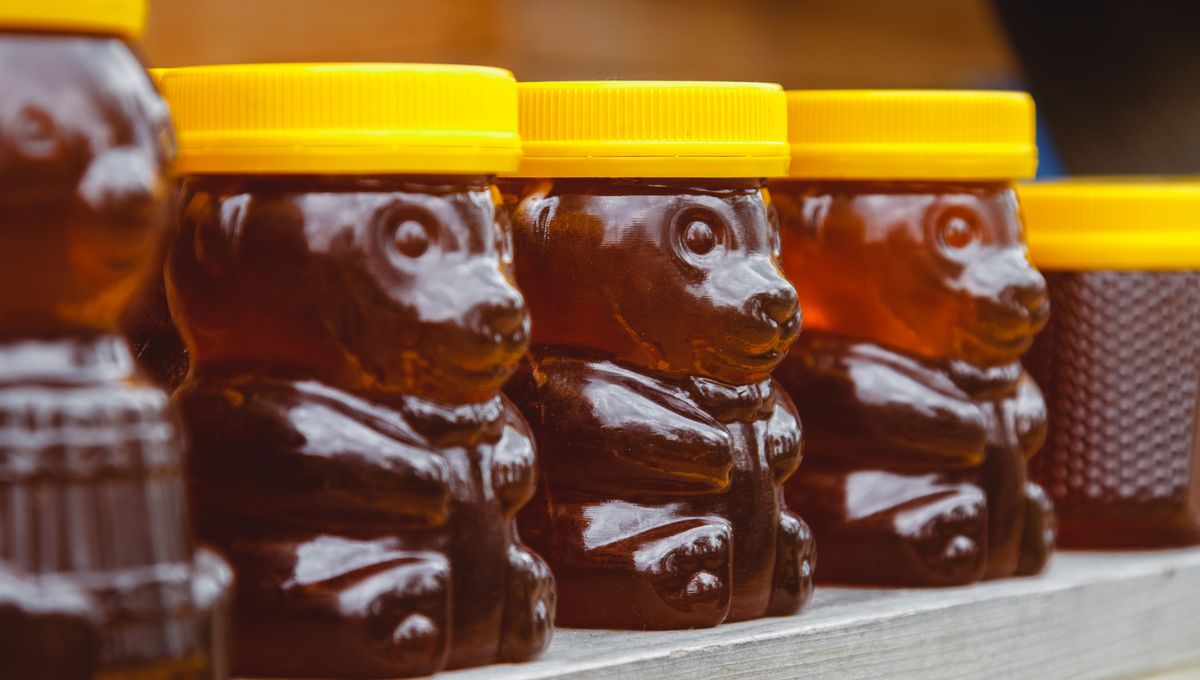
Any parents out there will most likely have been advised that it’s not safe to feed babies honey or honey-containing products, before the age of 1. In amongst all the myriad dos and don’ts that get thrown at you when you bring a tiny human into the world, you may have simply accepted this advice without questioning it further – but just why is honey so dangerous for babies?
ADVERTISEMENT
The problem is botulism. Specifically, the risk of infant botulism caused by toxic spores from the bacterium Clostridium botulinum.
Botulism is a potentially life-threatening condition caused by the botulinum toxin – yep, the stuff in Botox. When it’s not being carefully injected to smooth wrinkled faces or, more usefully, to treat a range of medical conditions, the neurotoxin can cause descending paralysis that can become fatal without immediate treatment.
C. botulinum produces protective spores when conditions for growth are suboptimal. Within these spores, it can survive in a dormant state for years, and they’re widespread in nature. One place they can be found, which was only identified comparatively recently, is in honey.
The spores themselves don’t normally cause a problem for humans, as if the bacteria are not actively growing, they’re not producing botulinum toxin. But it’s different for young babies, whose digestive and immune systems are not well developed. For reasons that scientists are yet to fully explain, this leaves babies under the age of 1 vulnerable to C. botulinum spores in a way that older kids and adults are not.
The spores can colonize the intestine and begin producing botulinum toxin. Symptoms include breathing difficulties, constipation, loss of head control, and difficulty feeding. When caught early, the condition is treatable, and babies usually make a full recovery, so it’s important to seek medical advice quickly if you think your child could have been exposed to botulinum toxin.
Infant botulism is very rare, and not all cases can be traced back to consuming honey. The recommendation is there because honey is a known source of the spores and is easy to avoid. A 2012 case report of a British child of Pakistani heritage who recovered from botulism discusses some cultural practices in Asia that involve feeding honey to babies, suggesting that some communities may benefit from increased public health measures to raise awareness of the risks.
ADVERTISEMENT
In adults, foodborne botulism can occur, though it’s also rare. Incorrectly canned and preserved foods are a particular risk because they provide the low-oxygen conditions this bacterium needs to grow. C. botulinum spores are heat-resistant, though the toxin itself can be destroyed by boiling, so ready-to-eat foods are a greater risk.
Botulinum toxin has been found a range of low-acidity foods including preserved vegetables and canned fish. Another potentially surprising source of a botulism outbreak in 1997 was foil-wrapped baked potatoes, which had been cooked and then left tightly wrapped at room temperature for several days – remember, this bacterium likes to be deprived of oxygen.
As well as steering clear of honey until children have reached the age of 1, the Centers for Disease Control and Prevention has a range of other tips to help you avoid botulism. You can’t smell or taste botulinum toxin, so the ultimate advice is: if in doubt, throw it out.
All “explainer” articles are confirmed by fact checkers to be correct at time of publishing. Text, images, and links may be edited, removed, or added to at a later date to keep information current.
ADVERTISEMENT
The content of this article is not intended to be a substitute for professional medical advice, diagnosis, or treatment. Always seek the advice of qualified health providers with questions you may have regarding medical conditions.
Source Link: Babies Shouldn’t Have Honey Before The Age Of 1 – Here’s Why